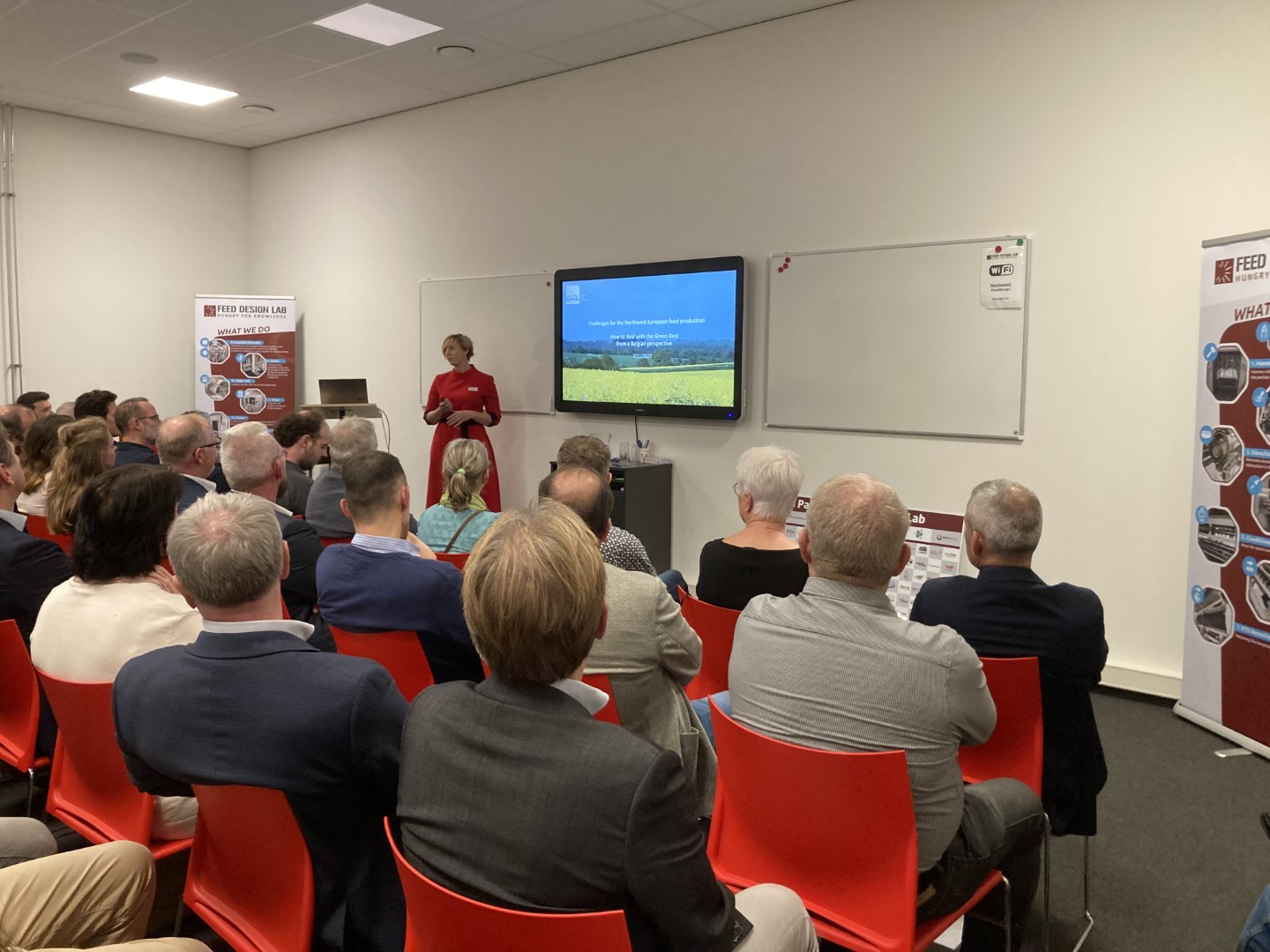
On November 7, Feed Design Lab organized the annual Business Meeting exclusively for its partners. This year it was once again a very successful afternoon with 80 participants.
The opening was done by chairman Han Swinkels. This was followed by a presentation by director Trudy van Megen about the milestones of 2023 at Feed Design Lab. Last year, the pilot plant achieved the highest turnover ever in Feed Design Lab’s existence. The orders for this came largely from additive suppliers (including pet food testing). Followed by assignments for research and projects and from the compound feed/raw materials industry. Finally, the fish food/pet food and machine/equipment suppliers provided a share of the turnover of the pilot plant.
Feed Design Lab also organized various open training courses and the number of customized training courses and on-site training courses grew.
Well-attended activities last year were the 4 workshops (Final seminar PPS Circular Bio Economy, the Energy Day (live and online), Towards 100% circular feed and the Challenge day with 5 pitches). This Business Meeting and the youth conference and the autumn meeting of the Young Feed Professionals were also well attended.
Katrien D’hooghe, managing director BFA, then gave a presentation entitled:
“Challenges for the Northwest European feed sector; How to deal with the Green Deal from a Belgian perspective”.
First, she provided an overview of total animal feed production worldwide, the European share thereof, global meat consumption and the degree of self-sufficiency with regard to a number of European agricultural products. She then discussed more specifically what The EU Green Deal means for BFA and its members. The EU acts as a world leader with several specific actions, of which ‘Sustainable food systems’ is at the heart of the European Green Deal.
Priorities of the animal feed industry are: stimulating a circular economy, sustainable soy, less emissions of methane, reducing the ecological footprint, reduction of our sector due to the reduction of nitrogen emissions and its socio-economic impact.
The EU is changing quickly… and so is BFA.
For example, in recent years, under the leadership of BFA, strong efforts have been made to develop so-called feeding measures that ensure that cows produce less methane. In the meantime, 11 feeding measures have been approved by the Scientific Committee.
In 2024, each BFA member will apply at least 1 approved feed measure from the Enteric Emissions covenant to 10% of the produced cattle feed intended for Flemish cattle.
However, such feeding measures increase the cost of the feed. Livestock farmers who apply a feeding measure can therefore rely on (partial) government financing through an eco scheme.
This very interesting presentation ended with a round of questions that was put to good use.
The afternoon ended with a walking dinner where there was plenty of opportunity to chat and network.

